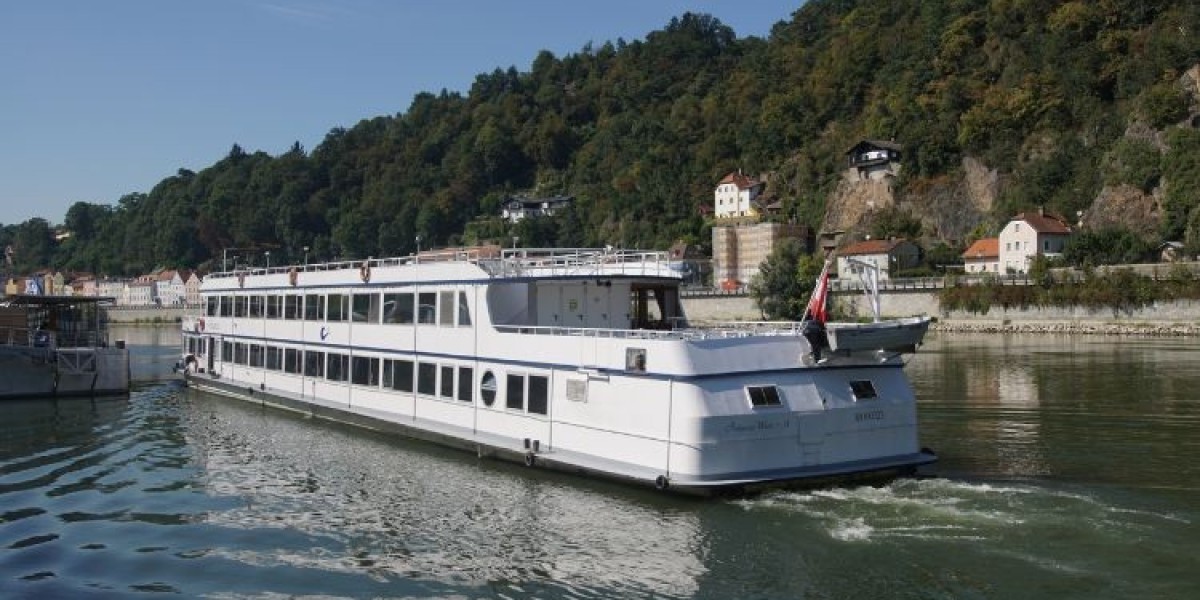The United Kingdom River Cruise Market Size has shown significant growth in recent years, with its market size reaching approximately USD 562.29 million in 2023. Fueled by a blend of scenic beauty, rich historical heritage, and the demand for personalized travel experiences, the market is projected to grow at a steady CAGR of 5.6% from 2024 to 2032. By 2032, the market is expected to reach a value of USD 924.30 million. This article explores the various facets of this market, including key developments, driving factors, challenges, and future outlook, providing a comprehensive analysis for stakeholders and travelers alike.
Key Benefits of River Cruises
River cruising in the UK offers several unique advantages that have bolstered its appeal:
- Scenic Journeys: The serene and picturesque landscapes along British rivers, including the Thames, Severn, and Avon, are a significant draw for tourists.
- Cultural Immersion: River cruises often incorporate visits to historic cities, castles, and landmarks, offering passengers a deep dive into British history and culture.
- Personalized Experience: River cruises typically offer smaller, more intimate settings compared to ocean cruises, providing tailored service, gourmet dining, and luxury amenities.
- Environmental Sustainability: River cruising is more eco-friendly than traditional cruises, with fewer emissions and a focus on sustainable tourism practices.
- Convenience: Unlike ocean cruises, river cruises offer shorter itineraries that appeal to domestic travelers or those looking for a quick, immersive getaway.
Key Industry Developments
Several significant developments have shaped the UK river cruise market in recent years:
- Growth of Domestic Tourism: The pandemic saw a rise in domestic tourism, with many UK travelers opting to explore local rivers and scenic waterways.
- Luxury and Thematic Cruises: There has been a growing trend toward luxury river cruises, offering fine dining, exclusive tours, and bespoke experiences. Thematic cruises focusing on heritage, literature, or music have also gained popularity.
- Technological Advancements: Modern riverboats are now equipped with state-of-the-art technology, including Wi-Fi, digital entertainment, and hybrid propulsion systems that reduce environmental impact.
- Partnerships with Local Tourism Boards: Cruise operators are increasingly collaborating with local tourism authorities to promote specific regions and attract niche markets like heritage lovers, food enthusiasts, and adventure seekers.
Driving Factors
The UK river cruise market is driven by several factors:
- Increased Demand for Experiential Travel: Travelers are now seeking more immersive and unique experiences. River cruises, with their combination of sightseeing, history, and luxury, are positioned as a preferred choice.
- Aging Population: The growing elderly population is a significant consumer base for river cruises. Seniors prefer the slow pace, comfort, and comprehensive itineraries that allow them to explore without physical strain.
- Sustainability Consciousness: As environmental concerns become more prominent, the lower ecological footprint of river cruises compared to traditional ocean liners has attracted environmentally conscious travelers.
- Rising Disposable Income: Increasing disposable income, particularly among older demographics, allows more people to afford luxury river cruises and extended travel packages.
Restraining Factors
Despite the growth opportunities, the UK river cruise market faces certain challenges:
- Seasonal Nature of Operations: River cruises are highly dependent on weather conditions, and the majority of operations are confined to the warmer months, limiting potential year-round revenue.
- Limited Infrastructure: Some rivers in the UK lack the necessary docking infrastructure for larger or more luxurious riverboats, which restricts market expansion in certain regions.
- Competition with Other Travel Segments: River cruises face competition from other forms of domestic travel, such as road trips, trains, and air travel, which often provide more flexibility and lower costs.
- Environmental Regulations: While river cruising is generally more sustainable than other forms of tourism, increasing environmental regulations could impose additional operational costs, particularly regarding fuel emissions and waste management.
Market Segmentation
The UK river cruise market can be segmented based on the following factors:
1. Type of Cruise:
- Luxury Cruises: Offering high-end amenities, gourmet dining, and exclusive excursions.
- Standard Cruises: More affordable and appeal to a broader audience with moderate luxury and comfort.
- Thematic Cruises: Focusing on particular themes such as historical tours, art, literature, or culinary experiences.
2. Target Audience:
- Elderly Travelers (60+): This segment prefers slow-paced, comfortable travel with a focus on cultural experiences.
- Families: River cruises offering family-friendly activities and accommodations.
- Couples: Romantic river cruises targeting couples, especially during holidays or special occasions.
- Luxury Seekers: Affluent travelers who prioritize premium services and exclusive experiences.
3. Duration of Cruise:
- Short Cruises (1-3 days): Popular among domestic travelers looking for a quick getaway.
- Medium Cruises (4-7 days): Ideal for exploring multiple destinations along key rivers.
- Long Cruises (8+ days): Catering to those seeking a more in-depth exploration of the UKs rivers and surrounding regions.
Market Outlook
The UK river cruise market is set to experience steady growth in the coming years, driven by the growing demand for experiential and domestic tourism, the appeal of sustainable travel options, and the expansion of luxury and thematic cruise offerings. The market is expected to reach USD 924.30 million by 2032, driven by increased consumer spending on travel and the growing popularity of staycations among UK residents.
Market Trends
Several key trends are emerging in the UK river cruise market:
- Personalization: Travelers increasingly seek personalized experiences, and cruise operators are offering more customized itineraries and services to cater to niche markets.
- Sustainable Tourism: With a focus on eco-friendly travel, companies are investing in hybrid engines and reducing their carbon footprint to appeal to environmentally conscious consumers.
- Rise of Thematic Cruises: Cruises themed around history, literature, gastronomy, and wildlife are becoming increasingly popular, especially among niche audiences.
- Domestic Focus: Post-pandemic, domestic tourism has surged, and many UK travelers are opting to explore their own country via river cruises.
Regional Analysis
The UK river cruise market is geographically segmented into several key regions:
- Southern England (Thames River): One of the most popular regions for river cruises, offering scenic views of London, historic towns, and picturesque countryside.
- Midlands (Severn and Trent Rivers): Known for its rich history and cultural attractions, this region is becoming an emerging destination for river cruises.
- Scotland (Forth and Clyde Rivers): The scenic highlands and historic castles make this region a significant draw for luxury and thematic cruises.
- Northern England: Although less popular, this region offers opportunities for future growth, particularly in the Yorkshire and Lake District areas.
Major Key Players
Several key players dominate the UK river cruise market, offering a wide range of cruise options:
- AmaWaterways LLC
- Viking River Cruises (Bermuda) Ltd.
- Tauck, Inc.
- The Travel Village Group
- Scenic Tours (UK) Ltd.
- Merlin Entertainments Group Company
- Riviera Tours Ltd.
- Lueftner Cruises GmbH (Amadeus River Cruises, LLC)
- European Waterways Limited
- Belmond Management Limited
- Others
These companies are continuously expanding their offerings, focusing on luxury, sustainability, and niche experiences to differentiate themselves in a competitive market.
Opportunities and Challenges
Opportunities:
- Expansion into New Regions: As demand grows, there is an opportunity to develop new routes and explore less-traveled rivers across the UK.
- Appealing to Younger Audiences: Although traditionally popular among older travelers, there is potential to target younger audiences through thematic cruises and adventure-based itineraries.
- Technological Advancements: The incorporation of modern technologies, such as hybrid propulsion systems and advanced onboard entertainment, can attract more customers.
Challenges:
- Environmental Concerns: Strict regulations regarding emissions and waste management may increase operational costs.
- Infrastructure Limitations: The lack of adequate docking facilities in some regions can hinder expansion.








